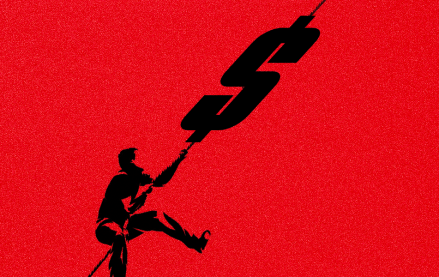Look out YouTube, Facebook to start sharing video ad revenue with partners

If YouTube was worried about Facebook before, it might very well be in panic mode now.
Beginning this fall, Facebook will start sharing video ad revenue with a select group of creators on its platform, including Fox Sports, Hearst, the NBA, Tastemade and Funny or Die, according to multiple reports.
Unlike YouTube, Facebook isn’t going the pre-roll route. Instead, the company is rolling out a custom news feed dedicated to video. The “Suggested Videos” feed will surface when a user clicks on a video in their regular news feed and will offer relevant videos that they might also like. So, for instance, if you watch an NBA highlight, the “Suggested Videos” feed would ostensibly offer more clips from NBA games as well as other sports highlights.
To monetize Suggested Videos, Facebook will place ads within the feed. “Within suggested videos, we will be running a monetization test where we will show feed-style video ads and share revenue with a group of media companies and video creators,” said a Facebook spokesperson.
Like YouTube, Facebook will take 45 percent of ad revenue generated from the video news feed. The remaining 55 percent will be split among all creators whose videos were watched in the feed, based on the amount of time users spent watching each clip. And since it’s still a test, Facebook isn’t opening up the video inventory to content partners just yet. Instead, it will run existing news feed ads already paid for by advertisers — essentially giving them “bonus impressions” while it tests and refines the video product.
Suggested Videos is the latest salvo from Facebook in a growing turf war between the two social media giants. Earlier this year, the social network announced that it was delivering 4 billion views per day during the first quarter of 2015, and launched its “Anthology” program to bring more custom, branded content to its platform.
However, this is not the first time Facebook has tested a video ad product with its content partners. Earlier this year, Fox Sports distributed episodes of its online series “@TheBuzzer” with a sponsored message from Nationwide attached as integrated post-rolls. A similar sponsored message from Fiat is running on this “@TheBuzzer” clip today.
Fox Sports, along with a dozen other test partners, is returning for this new test.
“Facebook is a significant driver of video views for Fox Sports content — 107 million views in May — so we’re very interested in trying to monetize those impressions,” said Pete Vlastelica, EVP of digital at Fox Sports. “It’s not clear how much revenue this will drive, but since we’re one of the first partners in the program, we’ll be able to learn what works on the new platform.”
And if it works, then YouTube finally has a serious competitor on its hands. Of course, there are a few caveats: Facebook is all about autoplaying videos and counts a view three seconds in; YouTube is user-initiated. That won’t matter if users gravitate to Suggested Videos and advertisers clamor for placements.
Initially, Suggested Videos is rolling out on Facebook’s iOS apps, followed by Android devices and the Web in the coming months.
Homepage image courtesy of Fox Sports
More in Media

Walmart rolls out a self-serve, supplier-driven insights connector
The retail giant paired its insights unit Luminate with Walmart Connect to help suppliers optimize for customer consumption, just in time for the holidays, explained the company’s CRO Seth Dallaire.

Research Briefing: BuzzFeed pivots business to AI media and tech as publishers increase use of AI
In this week’s Digiday+ Research Briefing, we examine BuzzFeed’s plans to pivot the business to an AI-driven tech and media company, how marketers’ use of X and ad spending has dropped dramatically, and how agency executives are fed up with Meta’s ad platform bugs and overcharges, as seen in recent data from Digiday+ Research.

Media Briefing: Q1 is done and publishers’ ad revenue is doing ‘fine’
Despite the hope that 2024 would be a turning point for publishers’ advertising businesses, the first quarter of the year proved to be a mixed bag, according to three publishers.





